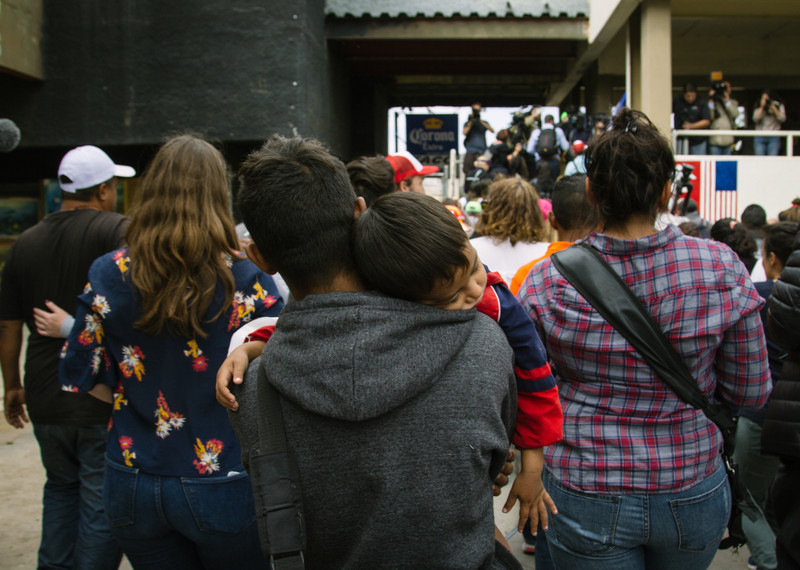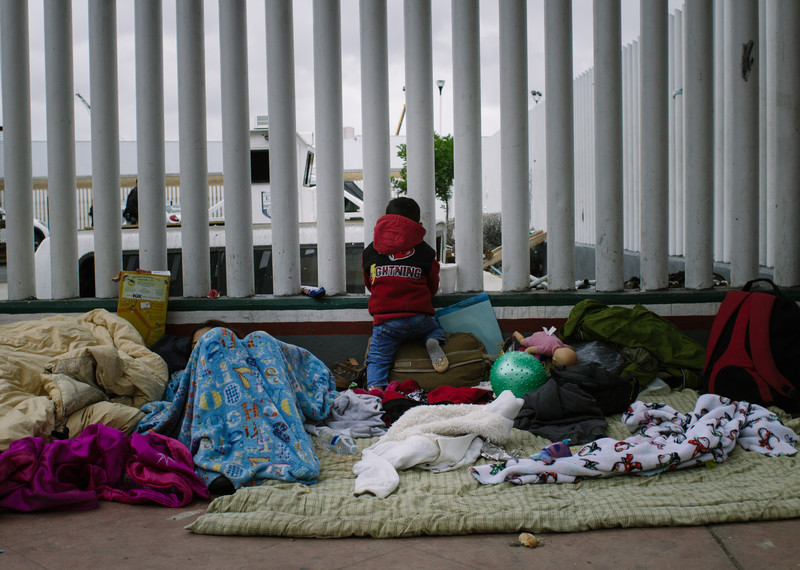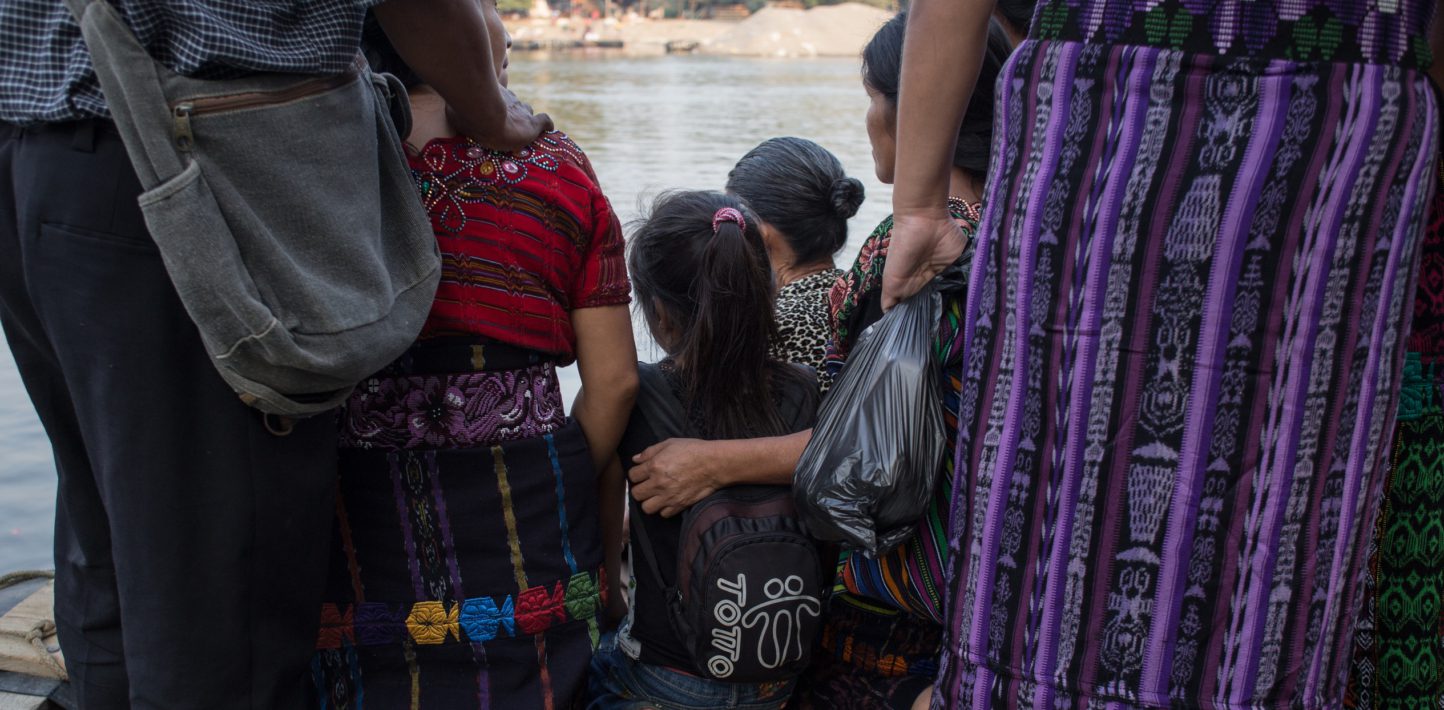Amnesty International’s view on US authorities’ family separation numbers:
- There has still not been a proper reckoning of the scale of abuse by US authorities in the family separations scandal.
- The US Congress must act immediately to publicly investigate and establish an exhaustive record of family separations by US authorities, and pass legislation prohibiting the separation and indefinite detention of children and families.
- US authorities must reveal their full statistics on family separations for public scrutiny, ensure that all those families are reunited, and guarantee this never happens again.

DHS statistics on family separations
- In total, the US Department of Homeland Security (DHS) has admitted to separating approximately 8,000 “family units” in 2017 and 2018, yet has also cast doubt on the accuracy of its own statistics.
- This number excludes the period from 1 March to 18 April 2018, when Amnesty International and other organizations documented additional family separations.
- In September 2018, the DHS agency Customs and Border Protection (CBP) informed Amnesty International that it separated 6,022 “family units” between 19 April and 15 August 2018.
- CBP clarified in October 2018 that the figure of 6,022 likely referred to individuals in families, and not family groups of multiple people.
- Even if referring to individuals in families, this is the highest number disclosed by CBP on the scale of its family separations policy.
- Until July 2018, the highest number provided publicly by the Trump administration was under 2,700 children, separated from an unknown number of adults.
- In the few previously published statistics, the ratio of separated children to adults was 1.03 to 1.00 – suggesting that a minimum of several hundred family units were excluded from previous estimates of the number of separated families.
- In October 2018, CBP could still not clarify the monthly breakdown of the 6,022 “family units”, or the number of families or children represented therein.
- In contrast, 13 out of 15 asylum-seekers interviewed by Amnesty International who were separated from family members, were separated after they requested protection at official US ports-of-entry.
- In September 2018, CBP informed Amnesty International that all of its public statistics exclude separated families whose relationships authorities categorize as “fraud” (meaning relationships CBP deems suspicious, or with non-immediate family members like grandparents).
- In this report, Amnesty International profiles the cases of five parents, and a grandmother with legal guardianship who were separated from their children despite having presented valid documentary evidence of their family relationships.
- Prior to 19 April 2018, US authorities informed the news media that they had separated an additional 1,768 families between October 2016 and February 2018, before the “zero-tolerance” policy, including 237 cases categorized by US authorities as so-called “fraud”.
- This suggests there may have been hundreds more cases of wrongful family separations that US authorities have yet to reveal, more than the 6,000+ other family separations.
- As of early September 2018, approximately 300 children had still not been reunited with their parents and guardians, from whom they were forcibly separated before their family members were deported to their countries-of-origin without their children.
DHS says its own statistics on family separations are inaccurate
- In October 2018, the DHS Office of the Inspector General (OIG) issued a damning report on family separations by DHS under the “zero-tolerance” policy, in which it found “the data DHS eventually supplied was incomplete and inconsistent, raising questions about its reliability.”
- In August and September 2018, CBP informed Amnesty International that it still did not have accurate numbers of family separations by US authorities:
- For the period prior to 19 April 2018, CBP claimed it did not yet have “an official count” of family separations.
- For the period after 19 April 2018, CBP also claimed it had not yet been able “to reconcile a complete and accurate list for separations that may have occurred during the zero-tolerance prosecution period”.
- In September 2018, CBP informed Amnesty International that it did not have “a full tally” of families it separated for reasons of so-called “fraud” (including non-parental relationships, such as grandparents; or subjective doubts about the validity of the relationship).

Arbitrary and indefinite detention
- The DHS has the capacity to incarcerate approximately 40,000 people per day.
- The DHS runs 211 detention centres, one of the world’s largest immigration detention systems.
- 15 transgender and gay asylum-seekers interviewed by Amnesty International for this report were detained for periods ranging from several months to over 2.5 years without parole, in some cases despite acute health conditions and needs for specialized care, or following sexual assaults while in detention.
- CBP employs more than 60,000 personnel, as of August 2018.
- The average daily population in immigration detention is projected to rise to 47,000 people by 2019 (a 23 percent increase), after a 2018 budget request.
Illegal pushbacks: Risks faced by asylum-seekers whom US authorities are forcibly returning to Mexico
- Since April 2018, US authorities have forced thousands of asylum seekers to wait for up to several weeks in Mexico, before allowing them to request asylum in the United States.
- In April and June 2018, the top Mexican immigration officials in two of the six Mexican states bordering the United States independently informed Amnesty International that US authorities had encouraged them to detain and check the legal status of asylum-seekers whom the US was forcing to wait in Mexico, with a potential view to their deportation.
- If true, this would constitute a gross violation of international refugee law.
- On 6 September 2018, Amnesty International provided CBP with an opportunity to respond to those allegations; CBP has not yet responded, other than with a confirmation of receipt.
- Thousands of people from Honduras, El Salvador and Guatemala were forcibly returned to their countries-of-origin by the Mexican immigration agency, Instituto Nacional de Migración (INM), without considering the risks and threats to their lives and security upon return.
- In a survey of 297 people detained by INM, 75 percent said they were not informed of their right to seek asylum in Mexico.
- 40 percent of them were forcibly deported to their countries of origin by INM, despite explicitly requesting asylum in Mexico or expressing fear for their lives in their home countries.


